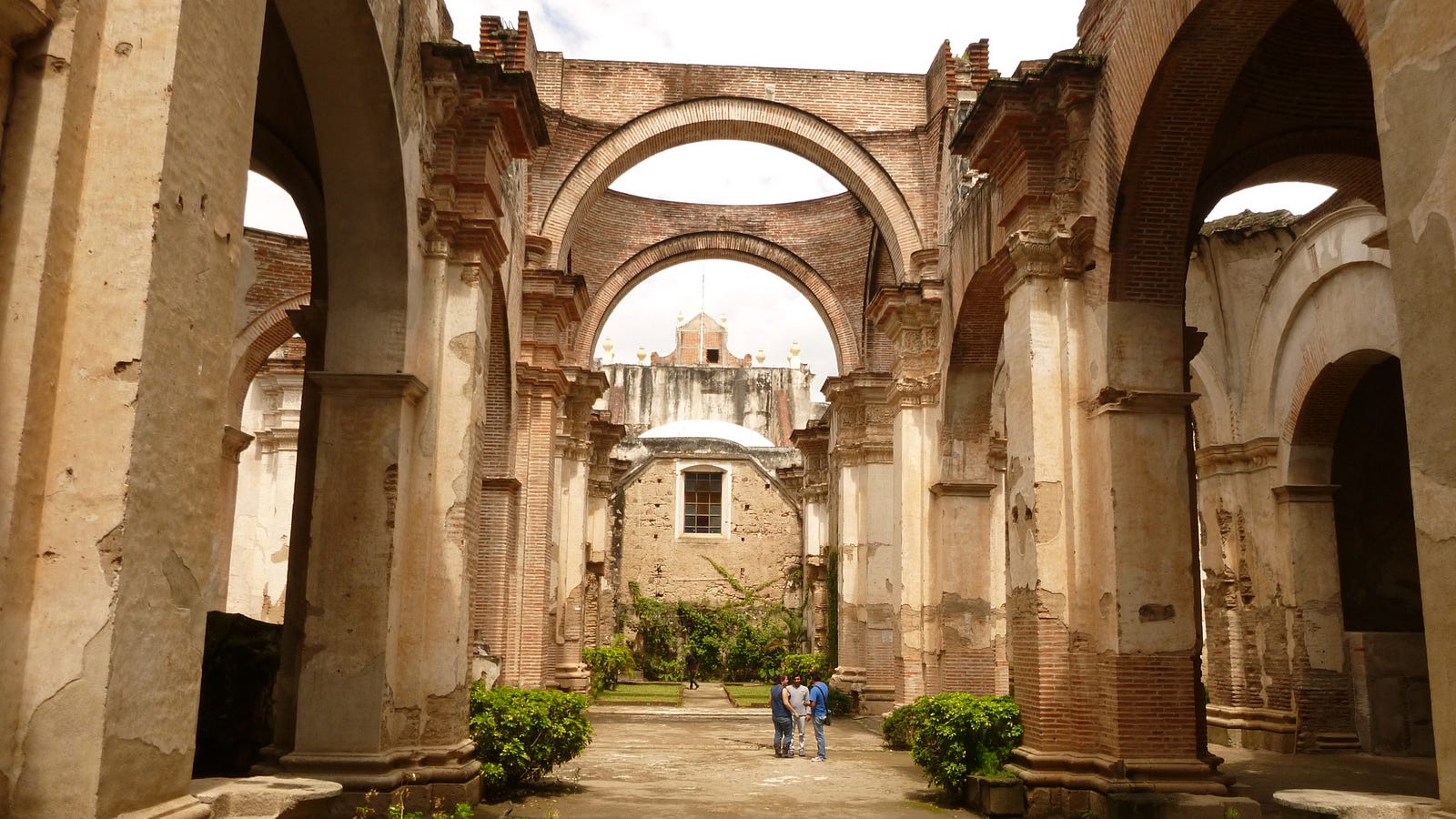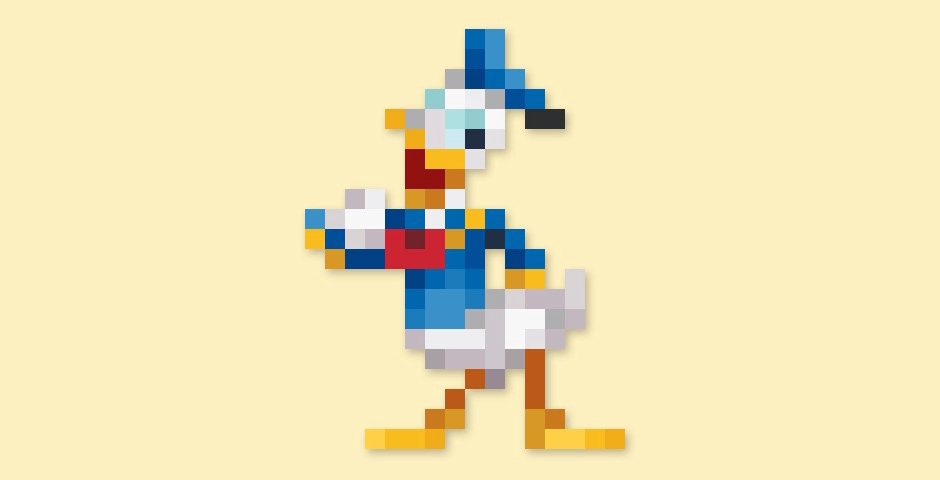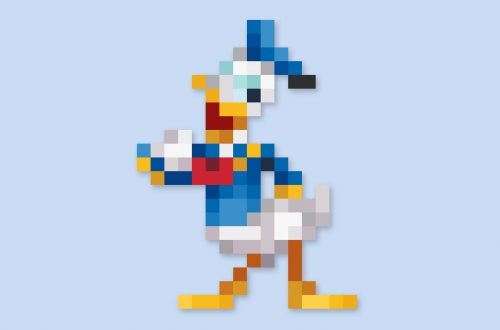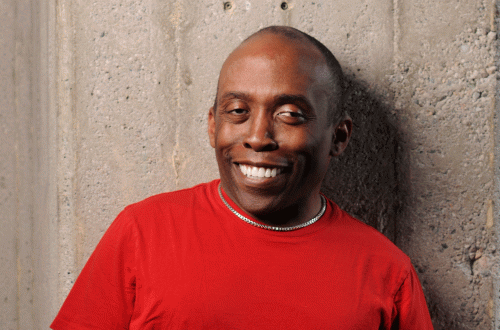Recently, the Medium publication C(G) S N A P S H O T S issued a challenge in which participants were invited to submit images for their Snapshot Selfie Challenge. I submitted a snapshot of a few mementos that represented different periods of my life. Oddly enough, one object in my snapshot garnered more comments than other—my vintage Donald Duck bobblehead from the late 1960s/early 1970s, described in the accompanying text as “the symbol of my former alter-ego, vehicle of torture and self-discovery.”
In the original text I promised to—at some point in the future—reveal a little of the backstory of my adventures performing as Donald Duck at Walt Disney World in Florida. Well, the time has come for me to tell you about my life in fur.
In this installment, I’m unpacking the story behind becoming Donald (Duck, that is) and traveling to Guatemala as one of three caballeros. Enjoy!
Five months after my Christmas debut in the Magic Kingdom as Donald Duck, I returned to Character Department for a summer gig performing in the Main Street Electrical Parade. The adventure proved to be so much more than I bargained for . . . in the best way imaginable. The people I worked with were the best, despite my disdain for the job itself. I put college on a temporary hold and expressed an interest to character management in joining their ranks a full-time permanent employee . . . as did several other several other hopefuls lucky enough to continue working past the summer.
To everyone in the Zoo, the probability of me “turning perm” was a foregone conclusion for one simple reason: ducks didn’t grown on trees.
Let me translate that last statement.
Casting average-height people with dance experience in the other height ranges was easy. People of average height were a dime a dozen. But finding people who fell within the Donald height range — between three feet ten and four feet four inches — presented a challenge. But I saw my chances of landing a full-time job in the department as tentative as everyone else’s. A few suspense-filled weeks later, supervision upgraded my status from seasonal to permanent.
Cast Members (employees) all over Walt Disney World wanted to be in the Character Department. Everyone knew us for happily dancing along the parade route and our fabled meet-and-greets. Some only saw me and my fellow character performers while we lounged around on breaks, and assumed we lived a life of leisure as we spent roughly half of shifts in costume. They saw the glory, but they didn’t know the story.
Cast Members (employees) all over Walt Disney World wanted to be in the Character Department. They saw the glory, but they didn’t know the story.
They probably never gave thought to the actual work that went into bringing those costumes to life. They never saw faces contorted in pain after completing a parade or imagined the amount of self-control it took to choke back frustration when dealing with more than one bullying parent for an autograph. They had no idea that a modicum of angst accompanied disappointing group of Guests who patiently waited in hopes of being that last picture taken before that character said good-bye and disappeared behind a non-descript door? (Trust me, the angsty good-byes got less angsty after the first five hundred exits.) But those were the experiences non-character employees knew nothing of.
I figured since I was going to be a full-time Disney character, I might as well be good at it and worked on breathing a little personality into my Donald performance.I mastered how to communicate non-verbally with guests and convey a wide range of emotions, despite the eternally happy smile on my Donald Duck head. I learned how to walk into a throng of autograph hounds, greet them en masse, get them to form an impromptu receiving line, and dole out individualized autographs and pose for photographs, all the while entertaining onlookers. My goal was to make everyone I came in contact with feel they had a unique and personal interaction with the real Donald Duck.
The most challenging thing about being a Duck was that it was the only costume approved for people my height: Donald. Yes, there was Scrooge McDuck and Daisy Duck (we’ll talk about “duck drag” in a much later post), but those characters were only brought on special occasions.
A guy could come in and perform as Goofy in the morning, switch to the lesser known Sheriff of Nottingham after lunch, dance in the parade as one of the Country Bears, and end the day terrorizing Guests as Captain Hook. From the center of my swarm of Guests, I watched many of my compadres stroll through the Park in costumed obscurity, free from hoards of people.
The lack of costume variety and relentless stream of adoring fans awaiting their favorite Duck at every turn, made it hard for me to go in and face the day sometimes.
Ever heard of Beatlemania? Try being Donald Duck. From the time Donald stepped into the Park till the second he waved good-bye, it was a mob scene. There was never, and I mean never, a day when I stepped into the Park in my Duck costume and someone asked, “what’s your name?” Never. I gained great sympathy for real-life celebrities who were hounded by the media. At least with my faux celebrity, I could take off the costume at the end of the day and leave it at work.
Don’t get me wrong,
my character experience wasn’t abysmal.
One bonus of working in the Zoo was traveling on marketing trips. In the early 1980s, the marketing department put together all sorts of promotional trips to just about everywhere east of the Rockies to spread the Disney magic. (Disneyland covered everywhere west of the Rockies.) And what was the one thing that created the most Disney magic any time, any place? You guessed it, a Disney character.
Being a Duck had one advantage over all the other characters and that was in the area of trips. All characters of permanent status were rotated through trips based on their height range and the demand for the characters in that height range. For example, if you’re number twenty-five out of thirty people in the Goofy height-range, you aren’t offered a trip until the twenty-four people before you have been on a trip. And you wouldn’t receive a second trip until the all the rotation came back around to you. Since there were only four people who played Donald Duck at that time and as a VIP the demand for Donald Duck was high, our rotation was more frequen than that of the Goofys. And we were unapologetic for that fact.
Oh, you’re doing Mr. Smee today? Enjoy that. I’m going to Chicago, Amsterdam, and Atlanta this year. You won’t get to bid on a trip till next year, you say? Hm, sucks to be you!
My first trip was to Guatemala City for seven days, with threeappearances. It was my first trip out of the country. My dislike of the job waned immediately.
Months before my trip, the coup d’état in Guatemala was all over the news. When the time came for our trip, the news of political unrest was no longer a big story in the media. I was hoping the same was true in Guatemala. I mean, come on. Disney wouldn’t send Mickey, Donald, and Goofy into harm’s way solely for a photo op, right?
As we rode from Guatemala City’s La Aurora International Airport, military police conspicuously lined the roadway in force. Their disposition looked anything but friendly and their camouflage ensemble, accessorized with oversized semi-automatic machine guns and wrap-around magazines of ammunition made them emotionally and physically intimidating.
Forget the warnings about drinking the water. I knew if it came to it, just like in the movies, the brotha in the group would be the one to get shot; not Mary (the petite, cute, blond girl portraying Mickey) or Jon (the tall blond guy portraying Goofy). And on that trip, the brotha was me. I knew how the news of my death would be taken by my parents. My mother would be crushed. My father would shake his head in disgust and say, “Dumb ass. Nobody told him to go be a character anyway. If he had gone to Florida A&M like I told him, he could’ve been somebody.” My father never quite got over me not attending his alma mater.
The company lodged us at the city’s finest accommodations, the Camino Real Hotel, in the heart of Guatemala City. With only three scheduled appearances, we spent the majority of our time sightseeing and shopping. Although the people were warm and friendly, the French I took in high school and college, didn’t help me at all. Our host was a native Guatemalan, and a few people in our entourage spoke Spanish fluently, which made getting around town easy.

One day we took a road trip to visit the three-hundred-year old colonial town of Antigua, located in the mountains. The two-lane road we traversed and the dense foliage set the mood for the centuries old, breathtaking cathedral ruins we explored.
Every Walt Disney World trip that involved Characters, included visits to hospitals. On our trip we visited the largest orphanage-hospital in Guatemala. Our van coasted alongside a large courtyard, bordered by a simple eighteen inch high, pale yellow wall. At least two hundred children sat motionless along the wall.
As we made our way into the orphanage via a side entrance, I was dumbstruck by the conditions. I knew that the lifestyle we, as Americans, experience was not typical to the rest of the globe; but to see abject poverty firsthand was a reality check. I had been in veterinary offices that were in better condition. That’s not to say that the staff didn’t take pride in their surroundings. On the contrary, they did the best with what was available to them.
My friends and I transformed from American tourists to Mickey Mouse, Donald Duck, and Goofy in a small office and were greeted with Spanish oohs and ahs.
Our hosts led us out to the courtyard, where each of us went in different directions so we could all work the courtyard at the same time. At that point, I had been performing as Donald Duck a few months, long enough to become well-acquainted with the costume, and had long since lost my initial Frankenstein walk. I strode around the courtyard like the cock of the walk. Yes, my portrayal of Donald Duck had swagger.
One of the nurses accompanied me and I barely heard her say toDonald “these are the deaf children” as we approached them. Since I wasn’t allowed to speak in costume, that bit of information didn’t affect my interaction with the kids a great deal. The closer I got to the children, the more I could see that their clothes were a little worn from wear, but clean nonetheless.
Like kids in the Magic Kingdom, the more outgoing kids greeted Donald with hug, but it was a different kind of hug. Each one of them held on for dear life. Judging from some of their reactions, meeting Pato Donaldwas the best thing to happen to them in a long time. I continued my way down the line. A few of the children were withdrawn, and with those kids I took more time and managed to coax a smile out of them. Meeting all the kids along that wall of the courtyard took about thirty minutes. I was in no hurry and made sure to greet each and every one of them.
Again the nurse bent over and whispered into where Donald’s ear would be, “These are the crippled children.” I appreciated her care in forewarning me, but I could see the children in wheelchairs lined up against the wall. I gave a big wave to all the kids waiting along the wall as if to say, “Hi there! I know you’ve been waiting. I’m on my way to see you!” I had to be careful not to step on toes or accidentally kick a child. Child after child was elated.
“Hi there! I know you’ve been waiting. I’m on my way to see you!”
After I completed the receiving line, the nurse led me to the third and final wall of the courtyard. Again, she bent over and spoke to Donald, “These are the blind children.” That bit of information threw me for a loop. I had never interacted with visually impaired Guests before. An integral part of a Character experience was visual.
I moved towards the children. I heard the nurse introduce me in Spanish to the first child and she slipped my hand — enveloped in the padded duck glove — into the first child’s hand. A smile crept over the little girl’s face. The nurse guided the little girl’s hand as she touched my silky smooth spandex sailor jacket. Her hands made their way to the four gigantic plastic buttons and the bow tie on the front of the sailor jacket. The little girl giggled. And as her hands moved to Donald’s face, she touched the bill and squealed in delight. I watched as she put all the pieces of the puzzle together that her fingertips revealed and her picture was complete. She laughed a hearty laugh and hugged me as if I were a long-lost grade school friend.
I hugged her back with every fiber of my being screaming, “Oh, how I love you. And wish I could take you away from all this!”The nurse uttered a few words to my newfound friend in Spanish. I guessed that she explained that Donald had to meet the other children. The little girl and I squeezed each other tight as if to say good-bye.
This vignette was repeated again and again. Other kids got to feel Donald’s very round but furry body, and were delighted to find the fluffy tail at the rear.
Alan, our supervisor, came over to me and pulled me aside. “Are you okay?” he asked. He wanted to know if I needed to take a break, but I answered in nonverbal Character-speak.
I nodded my head vigorously and rubbed my palms together to convey that I was ready for more.
“Are you sure? You’ve been out here for an hour. And we’re five thousand feet above sea level,” he said.
I appreciated his concern, but it would have been more of an inconvenience for all concerned if we retreated to that office only to catch a breath of fresh air for a couple of minutes. Besides, I was in no condition to say anything to anyone. Tears were streaming down my cheeks. My mind was busy sorting through how unfair the world was to discard children like refuse to live in these conditions. Children. I turned my emotions off and focused on the task at hand.
I dismissed both Alan and his comment by shooing him away in an exaggerated manner. I placed my right hand at the top of Donald’s right eye and slowly looked from one end of the courtyard to the other, and motioned for my supervisor to bring on more kids.
Children. I turned my emotions off and focused on the task at hand.
“Okay, okay. I was just asking. The other two are all right, too,” Alan added as he headed toward the main building.
I was keenly aware that all the kids who could see had their eyes on me at that moment. Always the showman, I rushed behind Alan and pushed him forward into Mickey and Goofy. The sighted kids laughed out loud.
The nurses led us through the hospital and told us that the children we would be seeing next were in serious condition. My heart sank. Over the next sixty minutes, we met bedridden children, children with birth defects, children with severe heart conditions, children who were burn victims, and children who were waiting for donor organs. We encountered children whose rooms we couldn’t enter, but we waved and blew kissed to them from the other of the glass. The list went on and on. And so did we.
During that hour, almost a mile above sea level, I kept my energy up for those kids. Their suffering was unfair. It was unfair that these kids, who didn’t have much to begin with, were stricken with life-threatening illnesses. It was unfair that those illnesses denied them the simple joys of childhood. It was unfair that their country didn’t have the medical resources that were available in the United States.
I didn’t know it at the time, but their world of inequities resonated within me. The unfairness of having a father who was emotionally unavailable to me and routinely receiving unwarranted stares from strangers were things I rarely thought about. The similarities in the orphans’ inability to effect a change in their living conditions mirrored my own helplessness in getting my father and certain members of the general public to accept me. The analogy was too great for me to recognize at the time, all I knew was that I was a cauldron of emotions.
For our efforts, the children showed their gratitude in a way more meaningful than I ever knew possible — a smile. When our visit with the children ended, we changed into our street clothes, and the nurse informed us that that day was the first time many of the children had smiled in months.
It wasn’t apparent to me then, but that morning at the Guatemalan orphanage awakened something inside me: a capacity to care about children with a sense of empathy. I learned that I had a responsibility to deliver a performance of Donald Duck that was as true to any animated short or feature ever produced by The Walt Disney Studios. That morning I learned what a unique position I had been given and the power that was at my disposal.
Excerpt from “Walking Tall: A Memoir About the Upside of Small and Other Stuff” by Clay Rivers.
If you enjoyed this essay, check out the others in this series.
“My Life in Fur (Part 1): The Accidental Audition”
“My Life in Fur (Part 2): ‘Merry Christmas to You, Too!”
“My Life in Fur (Part 3): ‘Show Biz Is’”
“My Life in Fur (Part 4): Becoming Donald”
“My Life in Fur (Part 5): The Show Mustn’t Go On
“My Life in Fur (Part 6): It’s Baseball in the USA”
“My Life in Fur (Part 7): Now It’s Time to Say Good-bye”




